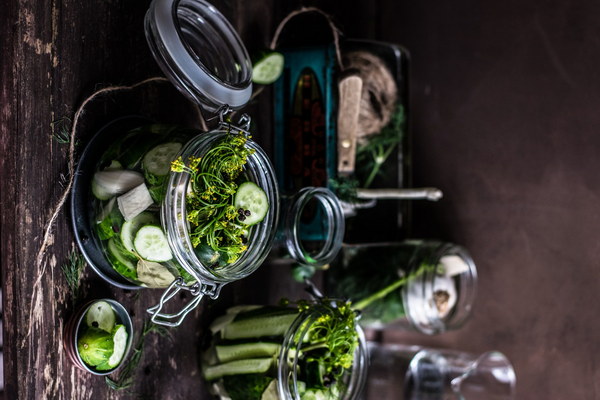Nurturing Your Lungs in Autumn A Guide to Traditional Chinese Medicinal Herbs
As the vibrant colors of autumn paint the landscape, the changing season also brings a shift in the balance of our body's energy, particularly in the lungs. The cooler temperatures and drier air can lead to respiratory issues, making it essential to take care of your lungs during this time. Traditional Chinese Medicine (TCM) offers a wealth of knowledge to support lung health, with various herbal remedies that can be used to nourish and strengthen the respiratory system. In this article, we will explore some of the most effective TCM herbal remedies for autumn lung care.
1. Astragalus (Huang Qi)
Astragalus is a well-known herb in TCM that has been used for centuries to boost the immune system and enhance lung function. It is believed to strengthen the body's resistance to pathogens and improve respiratory health. Astragalus can be taken in the form of capsules, tea, or as an ingredient in soups and stews.
2. Codonopsis (Dang Shen)
Codonopsis is another popular herb used in TCM to support lung health. It is known to boost the immune system, improve energy levels, and reduce stress, all of which can contribute to better lung function. Codonopsis can be consumed as a tea or added to soups and broths.
3. Elderberry (Sambucus Nigra)
Elderberry is a well-loved herb in TCM and Western herbalism alike. It is known for its immune-boosting properties and its ability to relieve respiratory symptoms such as cough and sore throat. Elderberry can be taken as a syrup, tea, or in supplement form.
4. Licorice Root (Gan Cao)
Licorice root is a versatile herb that can be used to support lung health in several ways. It has anti-inflammatory properties that can help soothe the respiratory tract, and it also works as a demulcent to coat and protect the throat. Licorice root can be found in teas, tinctures, and as an ingredient in other herbal blends.
5. Goji Berries (Wu Wei Zi)

Goji berries are not only a delicious snack but also a powerful herb for lung health. They are believed to boost the immune system, improve energy levels, and enhance lung function. Goji berries can be eaten raw, dried, or used in teas and smoothies.
6. Mulberry Leaf (Sang Sheng)
Mulberry leaf is another TCM herb that can help support lung health. It is known to reduce inflammation and improve respiratory function. Mulberry leaf can be consumed as a tea or added to soups and stews.
7. White Peony Root (Bai Shao)
White peony root is an herb that is commonly used in TCM to nourish the lungs and improve respiratory health. It is believed to help alleviate cough and improve lung function. White peony root can be taken as a tea, tincture, or as an ingredient in herbal formulas.
Incorporating these TCM herbal remedies into your daily routine can help protect your lungs during the autumn season. However, it is essential to consult with a qualified TCM practitioner or healthcare professional before starting any new herbal regimen, as certain herbs may interact with medications or not be suitable for everyone.
Remember, the best way to maintain lung health is to combine herbal remedies with other lifestyle choices, such as staying hydrated, avoiding exposure to allergens and irritants, and engaging in regular physical activity. By nurturing your lungs with both herbal and lifestyle practices, you can enjoy a more comfortable and healthy autumn season.









